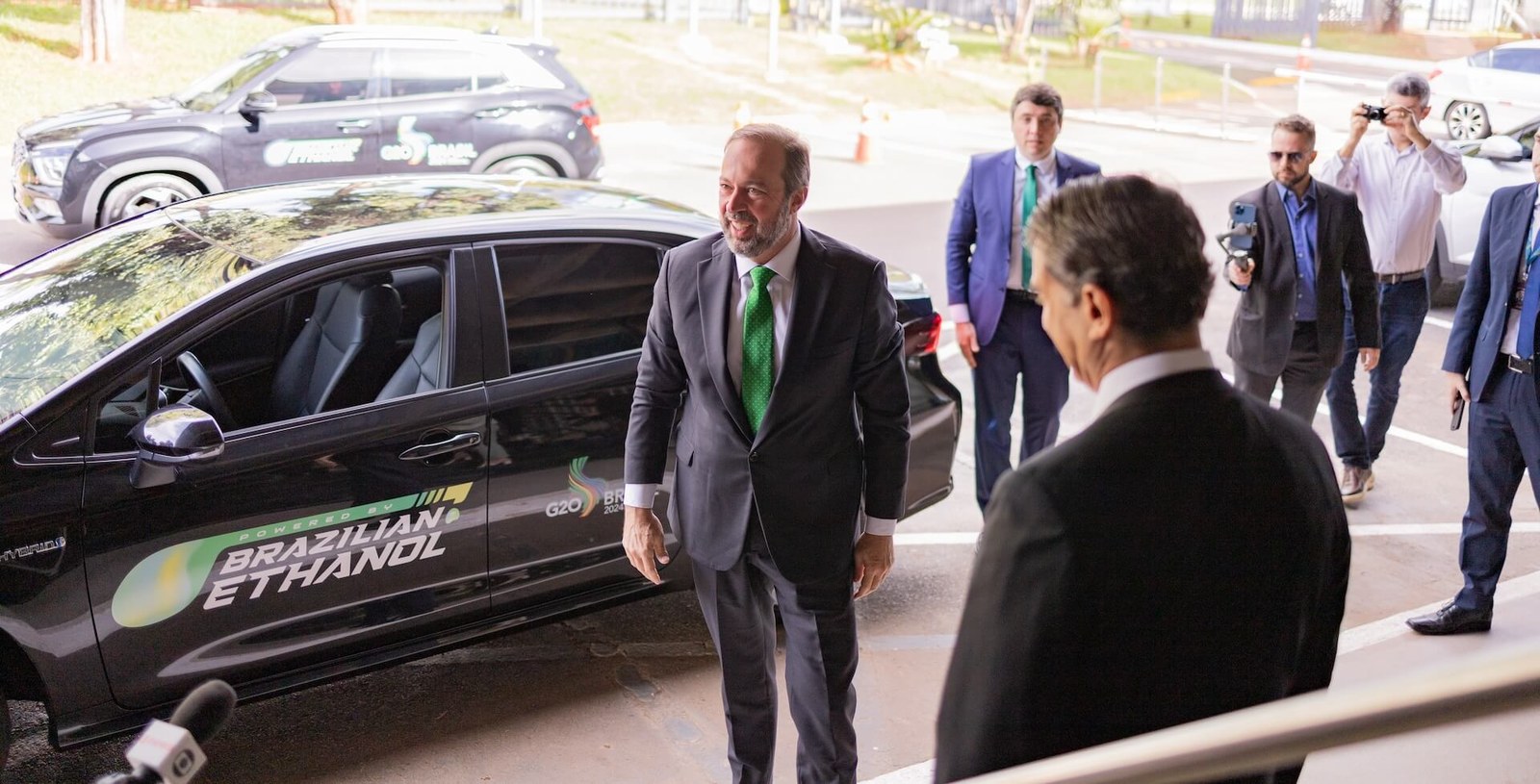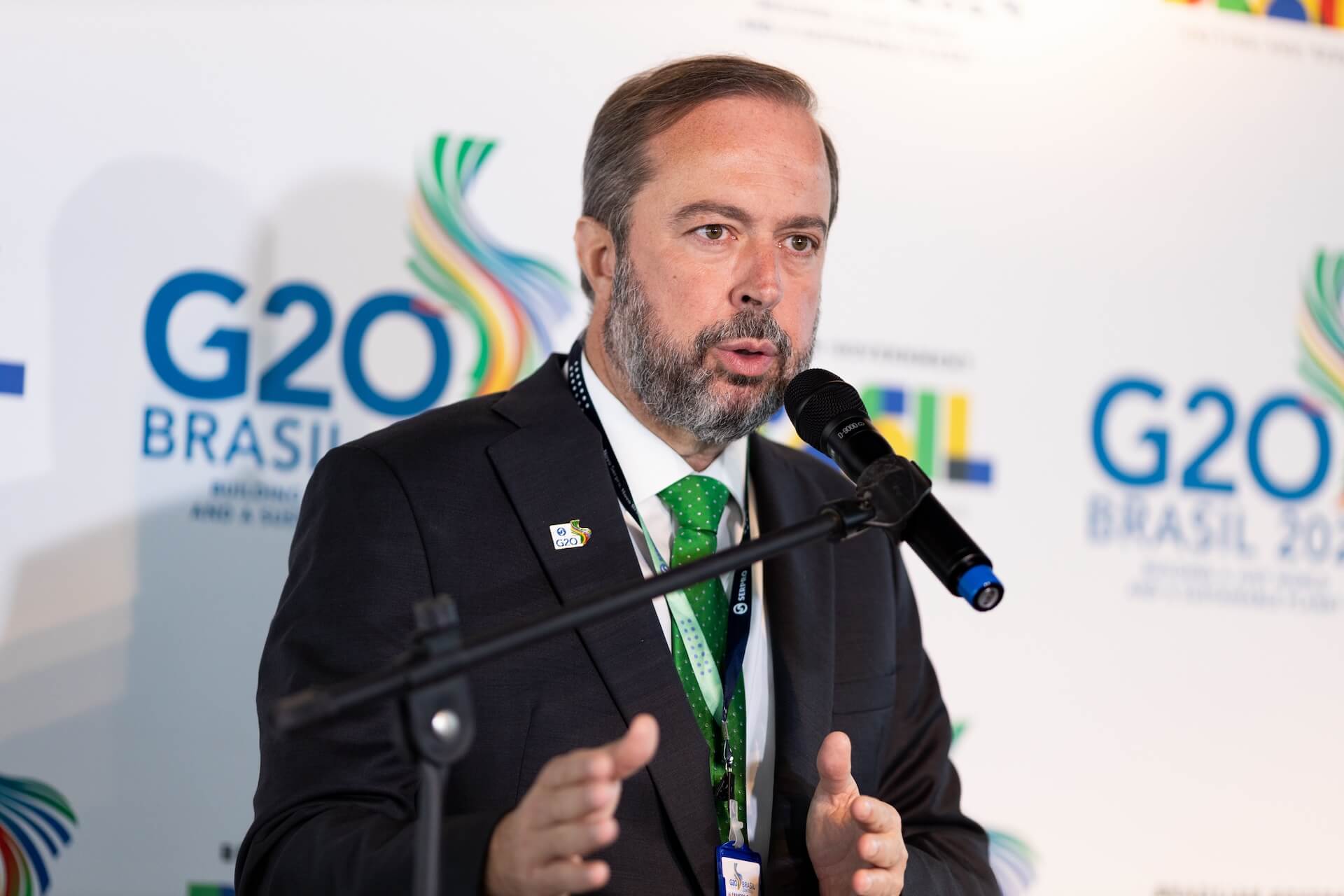The Brazilian Minister of Mines and Energy, Alexandre Silveira, arrived at the G20 headquarters for the Energy Transitions Working Group meeting driving a hybrid car fueled by gasoline and ethanol. He believes that rich countries must recognize biofuels as an important source of decarbonization. "The so-called flex car is Brasil's vocation," said Silveira, stressing that the country is a world leader in energy transition.

On Monday, April 15, the Brazilian Minister of Mines and Energy, Alexandre Silveira, arrived at the G20 headquarters in Brasilia for the first day of the face-to-face meeting of the Energy Transitions Working Group driving a hybrid car fueled by gasoline and ethanol. For the minister, the so-called flex car is Brasil's vocation. During a press conference, he spoke about Brasil's potential in renewable energies and access to financing for the energy transition.
According to the minister, there is a great deal of discussion about which technological routes each country will strengthen for a change in the energy matrix. He argues that the sovereignty of each nation must be respected, taking into account the natural potential of each region. "For example, some countries, especially in Europe, often reject biofuels. However, biofuels must be recognized as an important source of decarbonization. We cannot ignore the reality of countries with an average Human Development Index (HDI) dozens of times higher than developing countries, who are unwilling to sit down to discuss the real energy transition. This is our great challenge," he stated.
The minister also stressed the importance of cooperation between all countries, since carbon dispersion has no borders. In addition to arguing that the energy transition cannot be launched without recognizing that the 4.5 trillion dollars established in the DUBAI COP, for the production of clean and renewable energies by 2030 will only happen if industrialized countries start to comply with the Copenhagen Accord. The Accord established 100 billion dollars in yearly clean energy investments from 2020.
The minister also stressed the importance of cooperation between all countries, since carbon dispersion has no borders. In addition to arguing that the energy transition cannot be launched without recognizing that the 4.5 trillion dollars established in the DUBAI COP, for the production of clean and renewable energies by 2030 will only happen if industrialized countries start to comply with the Copenhagen Accord. The Accord established 100 billion dollars in yearly clean energy investments from 2020.

After the G20 meeting in November, the WG members expect to deliver a roadmap with policy guidelines to accelerate market development for new sustainable fuels, including hydrogen and its derivatives, and sustainable fuels. The next Energy Transitions Working Group meeting will happen between May 27 and 29 in Belo Horizonte, Minas Gerais.






